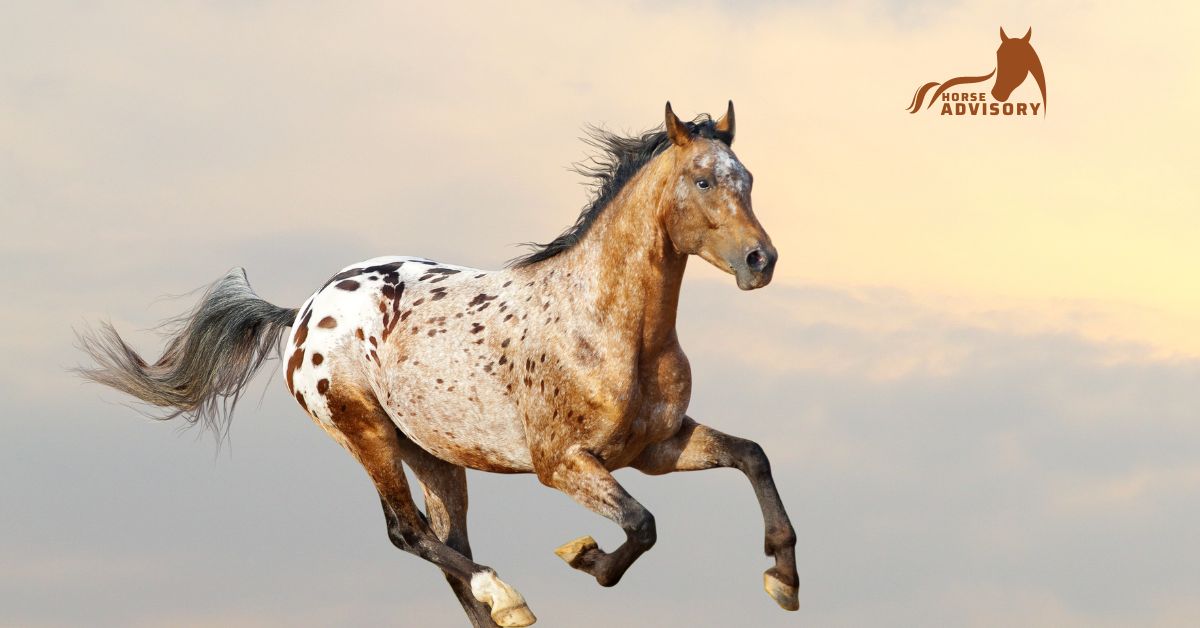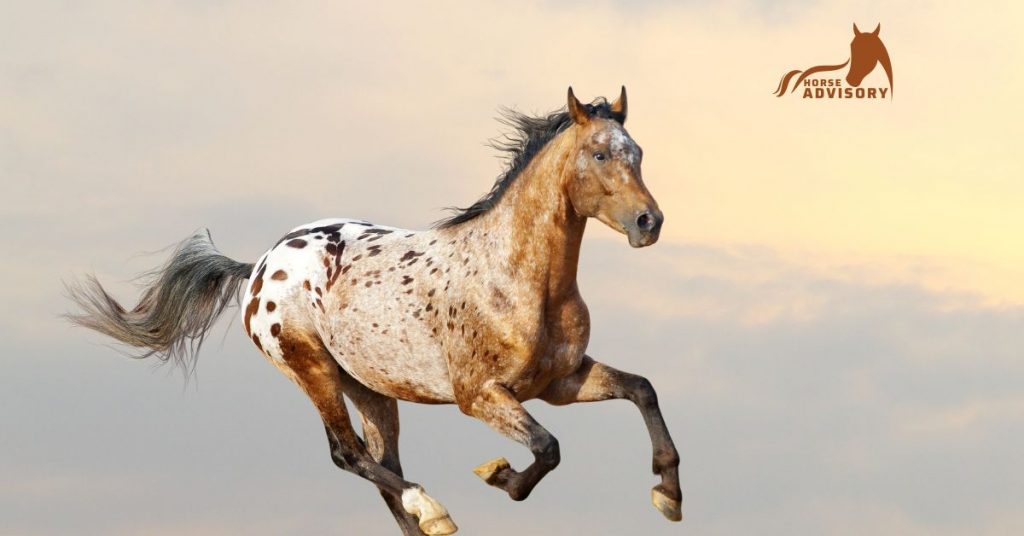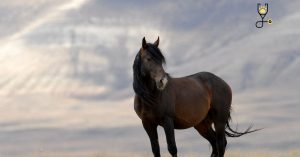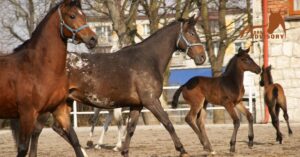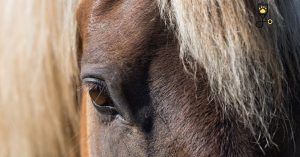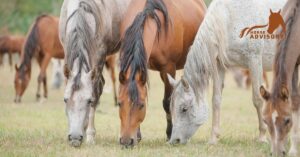When you’re just starting out riding, it can be confusing to decide which type of horse is right for you. Do you buy a stallion, gelding, or mare? There are pros and cons to each option, and the best decision depends on your individual situation. Keep reading to learn more about each option and find the perfect horse for your needs
Stallion
A stallion horse is an adult male horse that has not been castrated and retains its masculine qualities such as strength, size, and speed. This can be an appealing prospect for beginner riders looking to get into the sport of riding horses since a stallion can offer experienced riders more challenge and excitement than other breeds or even gelded horses might provide. However, there are both pros and cons to buying a stallion that any potential owner should consider before making this decision. This guide will discuss the advantages and disadvantages of owning a stallion so that beginner riders can make an informed decision.
Advantages of a Stallion
The primary advantage to owning a stallion is that they often have superior physical qualities such as size and strength, making them well suited for various activities ranging from horse racing to endurance riding. Additionally, because stallions are not castrated, they retain their masculine pheromones which can help with maintaining the hierarchy of other horses in the herd. This can be beneficial for owners who have multiple horses and want to ensure that each one follows its respective role within the herd. Finally, many owners find that stallions tend to be more spirited than gelded horses, which can add an extra layer of excitement and challenge during rides.

Disadvantages of a Stallion
On the other hand, there are several disadvantages to owning a stallion. For one, stallions can be difficult to handle due to their strong personalities and aggressive behavior. This can make them dangerous for inexperienced riders as well as intimidating for those who may not be prepared for such an unpredictable animal. Additionally, because of their sexual hormones, male horses will naturally attempt to breed with female horses in the area leading to additional expenses from vet bills or stud fees if you plan on breeding your horse. Finally, stallions typically require more specialized care than geldings or mares and need to be trained appropriately in order for their owners to achieve success with them.
Gelding
Like a stallion, a gelded horse is an adult male horse, but one that has been castrated in order to limit its aggressive behavior. Geldings are the most popular choice for beginner riders due to their more predictable and friendly temperament compared to that of a stallion. They’re known for being loyal and easy to manage, making them ideal for those just starting out in the equestrian world. However, as with any type of horse ownership, there are both advantages and disadvantages to owning a gelding which every potential owner should consider before making this decision.
Advantages of a Gelding
The primary advantage to owning a gelding is that they have been specifically bred and trained for riding activities such as horse shows or competitive events. Furthermore, because they have been castrated, geldings do not possess the same aggressive and unpredictable behavior as stallions making them a safer option for beginner riders who may not yet be comfortable with handling an animal of such power. Additionally, geldings tend to live longer than other horses due to their lack of sexual hormones reducing the risk of certain diseases or health issues related to aging.
Disadvantages of a Gelding
Despite their many benefits, there are still some drawbacks to owning a gelded horse. For one, because they’ve been specifically bred for riding activities, it can be more difficult to find a suitable match in terms of size and strength for those looking for larger animals that are better suited for activities such as racing or endurance riding. Additionally, geldings may have a slightly weaker immune system due to the lack of hormones which can lead to more frequent health issues down the line. Finally, while they are typically less aggressive than stallions, they can still be difficult to handle and will require proper training in order for their owners to achieve success with them.

Mares
Mares are female horses that have not yet been bred or had their first foal. These horses are typically seen as more docile and gentle than geldings, making them an ideal option for beginner riders. Much like the other types of horses, there are both advantages and disadvantages to owning a mare which potential owners should consider before committing to this decision.
Advantages of a Mare
The primary advantage to owning a mare is that they tend to have longer lifespans due to the lack of sex hormones in their system. This can make them particularly well-suited for those looking for an animal companion over a long period of time. Additionally, mares tend to be very reliable and predictable creatures with even temperaments, making them perfect for those just starting out in the world of horsemanship.
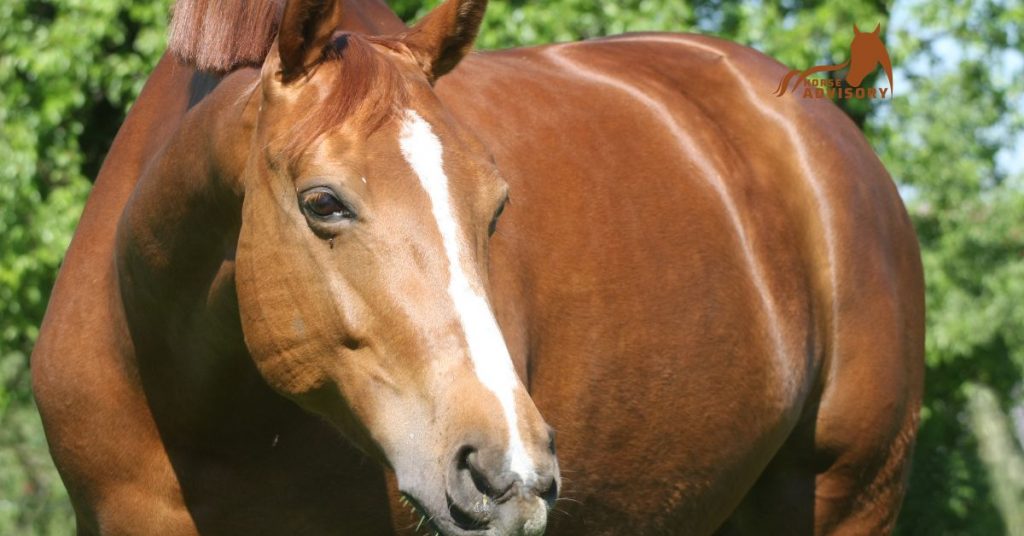
Disadvantages of a Mare
However, there are also some drawbacks to owning a mare which every potential owner should consider before committing. For one, because they have not yet been bred, mares often require more specialized care than other types of horses and need to be trained in order for their owners to achieve success with them. Additionally, due to the unpredictability of their behavior during heat cycles or when in foal, mares may require more time and energy from their owners than other horses would. Finally, much like stallions, mares can exhibit aggressive behavior towards both people and animals making them potentially dangerous for inexperienced riders.
- Overall, both geldings and mares can be great companions for those just starting out with equestrianism, but it’s important to remember that each type of horse comes with its own unique set of advantages and disadvantages. Owning a horse is a lifelong commitment so it should not be taken lightly. Consider all factors before making your decision and make sure to do plenty of research in order to find the right match for you!
Conclusion
In conclusion, the decision between a gelding and a mare for an equestrian novice is not one to be taken lightly. Geldings offer many advantages such as being specifically bred and trained for riding activities, being less aggressive than stallions and having longer lifespans due to their lack of sexual hormones. However, they can also be difficult to find in bigger sizes and may have weaker immune systems. Mares are typically seen as docile creatures with even temperaments but they need more specialized care than other horses, require plenty of training to achieve success with them, and can become unpredictable during heat cycles or when in foal. Ultimately, the right animal companion depends on the owner’s lifestyle, experience level, and commitment to the animal. Consider all factors before committing to a horse and make sure to do plenty of research! Good luck!
Frequently Asked Questions
Q1: What are the advantages of owning a gelding?
A1: The primary advantages to owning a gelding are that they are typically bred and trained specifically for riding activities, they are less aggressive than stallions, and they generally have longer lifespans due to the lack of hormones.
Q2: What should someone consider before getting a mare?
A2: Before getting a mare, potential owners should consider that these horses require more specialized care than other types of horses, need lots of training in order to achieve success with them, and can exhibit unpredictable behavior during heat cycles or when in foal. Additionally, mares may be more aggressive than geldings so inexperienced riders should exercise caution.
Q3: What is the best type of horse for a beginner?
A3: The best type of horse for a beginner would depend on their lifestyle, experience level, and commitment to the animal. Both geldings and mares can be great companions for those just starting out with equestrianism, but it’s important to consider all factors before making a decision. Researching various breeds and talking to experienced riders can help in making an informed decision.
Q4: How long do geldings usually live?
A4: Geldings typically have a longer lifespan than mares or stallions due to the lack of hormones. On average, geldings can live up to 25-30 years with proper care and nutrition.
Q5: Are mares more docile than geldings?
A5: Mares are generally seen as being more docile and even-tempered than other horses, however, they can also be unpredictable during heat cycles or when in foal so it’s important for potential owners to consider this before committing. Additionally, inexperienced riders should take caution with mares as they may exhibit aggressive behavior towards both people and animals.
